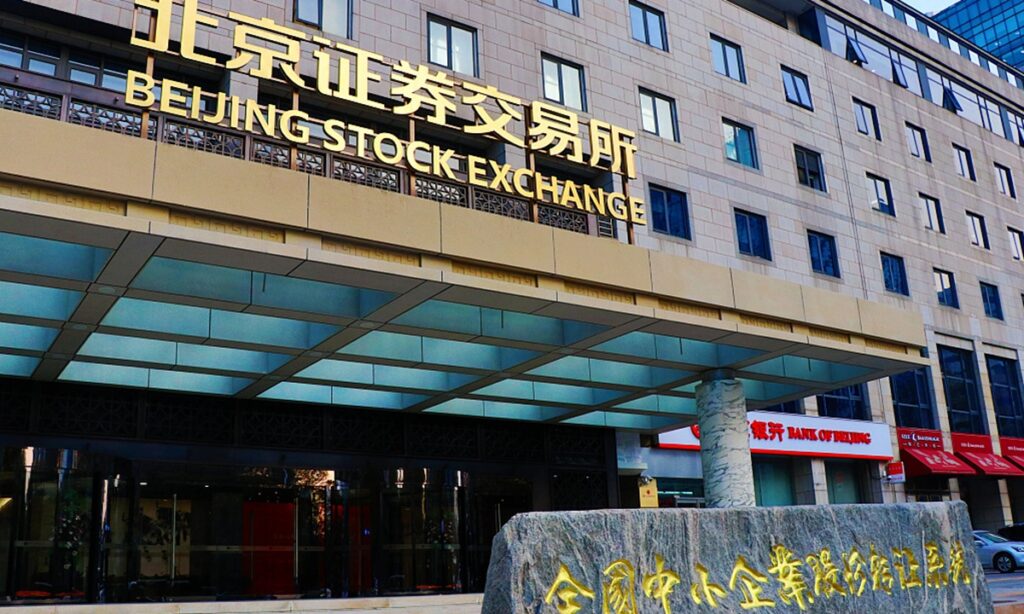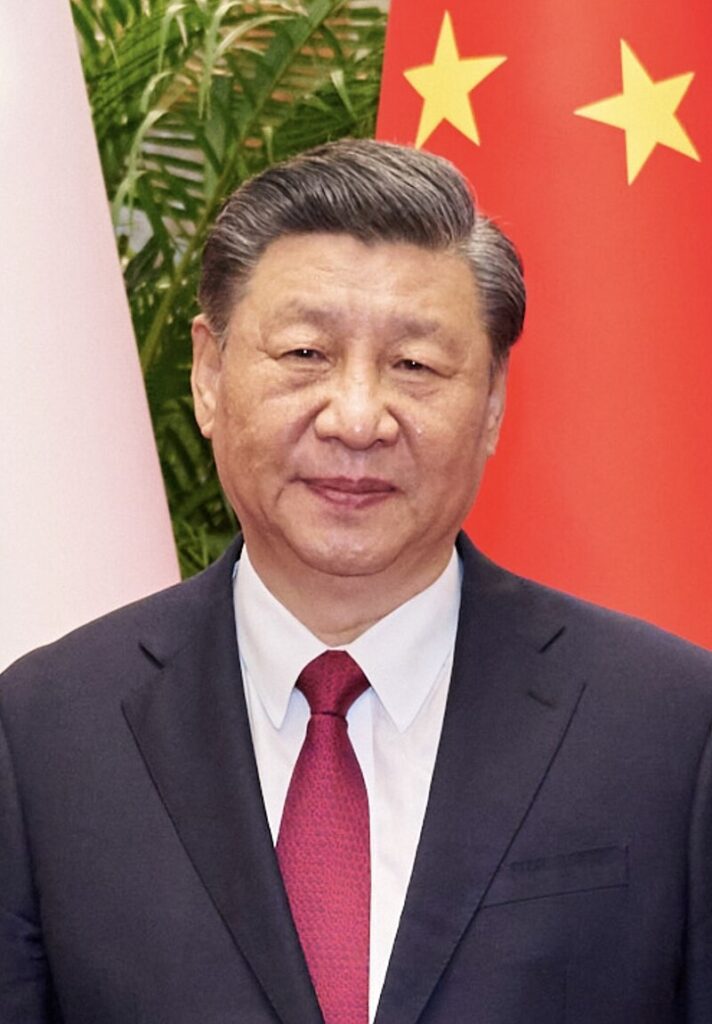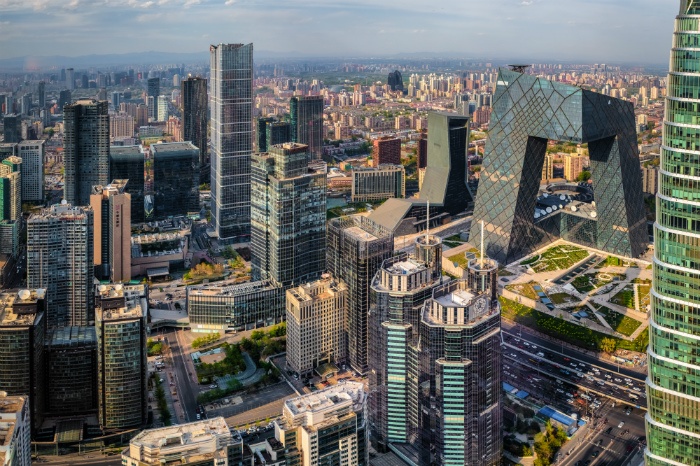By Greg Oxley (Editor – La Riposte)
The following text on the nature of the Chinese economy, is part of a broader analysis of the economic, social, and political situation in China that Left Horizons will be jointly publishing with the French socialist website La Riposte over the next few weeks.
It should be seen as a contribution to a general discussion on an analysis and perspectives for China, against the background of China’s important position in the world economy and global politics and increased tensions between China and the USA.
[The French language version in La Riposte can be read here.)
…………………………………………………………..
The relative weight and the relationship between the public and private sectors in China’s economy are not easily determined. Complexity and diversity in the structure of state-owned enterprises mean that it is not always possible to consider them as belonging to a single clear-cut category. Over recent decades, for instance, there has been an exponential increase in the number of privately owned but “state-connected” firms, which amount to joint-venture companies being state and private capital, blurring the lines between the state and the private sector.
The China Statistical Yearbook, published by the National Bureau of Statistics, defines eight different forms of ownership. Degrees of direct state control vary, as does the proportion of private capital they incorporate. Private enterprises can have part of their stock owned by state entities. Nonetheless, a number of broad-based assessments, from a range of sources, indicate that private enterprises account for more than 60% of China’s GDP and over 80% of employment.
Gao Yunlong, head of China’s Federation of Industry and Commerce, concurred with this assessment in a speech he gave in 2018, adding that 60% of fixed assets and outbound investments were made by private investors, which also accounts for 70% of technological innovation and “new products” within the country, and 90% of new jobs. Total private investment stood at to 38.2 trillion yuan (or approximately $6tn). These statistics, provided as they are from official Chinese sources, leave no doubt as to the preponderant role of private capital in the economic life of the world’s second-largest superpower.
Gao also provided some information on the scale of private enterprise in China, putting the number of privately-owned companies, in 2017, at over 27 million and individually-owned businesses at almost 66 million, employing some 640 million workers.
In order to understand the nature of the Chinese economy, we must take a closer look at what exactly is meant by terms such as “state sector” and “publicly owned” enterprises. A common mistake in analytical writings in Marxist circles is to make assumptions about the content of these terms by relying on historical – or some might say “classical” – definitions of Marxist theoreticians of the 20th century.
Classical Marxism
“Classically”, it might be assumed that state-owned enterprises in China are entirely funded by the state and that the surplus value created in the course of their activity would also belong to the state, which could then use these resources to finance further investments or for other purposes to meet the needs of society. But this is not the case in China. Beyond the question of “ownership”, we must be clear about what exactly is “owned”, about the nature of the enterprises in question.

State-owned enterprises in China are run for profit. Their profits are generated, like in all capitalist enterprise, irrespective of who might own them, by the extraction of the greatest possible surplus value from the exploitation of wage labour – often at the expense of the mental and physical health of the workers – and the sale of the products and services created by this labour on the internal market and abroad.
In information technology and many other branches of industry, workers are subjected to the “996” work schedule, meaning a working day from 9am to 9pm, six days a week. The levels of state investment and the purposes to which this investment are put are determined by capitalist criteria of profitability, through the intensification of the rate of exploitation and increased productivity of labour.
State-owned enterprises in China are capitalist enterprises in all but name, with their share prices rising and falling on stock exchanges and payment of dividends to their investors, just like any other major capitalist entity on a world scale. The profits they accrue are not paid into the state treasury, but remain within the company, for investment purposes, but also to pay exorbitant salaries to their CEOs and board members.
Indeed, until a few years ago, none of the profits from any of the major state-owned companies found their way into public funds. A number of reforms over recent years have begun to change this to some degree, with the aim of gleaning from 10% to 25% of profits for the state, as a contribution to pension funds and other forms of social expenditure.
The relationship between the state and these enterprises cannot be equated to “state planning” in the sense that Marxists might generally understand the term. It is at best a peculiar form of “state capitalism”, where representatives of the government control and direct the activities of the enterprises in question, in accordance with the strategic aims and requirements of the regime, but where the internal workings of the companies operate according to capitalist methods and criteria.
Profit-hungry investors
Formal “ownership” or “control” in itself does not exhaust the question of the nature of the economy. These enterprises, although formally overseen and managed by the state, are nonetheless capitalist in nature. State-appointed administrators of state-owned enterprises are expected to satisfy the requirements of the regime, on the one hand, but they must also satisfy the profit-hungry stock market investors upon whom practically all such enterprises are dependent, to a greater or lesser extent. It is not just a question of who decides, but of the imperative criteria commanding their decisions.

Despite the importance of their role in the economy, private enterprises have been disadvantaged in comparison with state-owned enterprises in their struggle for funding through bank loans and other sources. This is essentially because they are perceived as being a riskier investment gamble than their state-owned counterparts. The government is the ultimate owner of state sector enterprises, and so the perceived likelihood of them ever defaulting is relatively low, especially because they are often involved in the strategic aims and interests of the regime.
Privately owned firms are usually more reliant on exports and therefore more exposed to fluctuations in global trade patterns. Another factor which makes investing in a state-owned company less risky is that manufacturing is dominated by private firms while state-owned firms dominate sectors such as energy and utilities, which tend to have steadier flows of income.
The economic and financial dependence of the regime on the development of privately owned companies – upon which, as the most dynamic sector of the economy, social stability and, ultimately, upon which the survival of the regime has come to depend – is reflected in the wide range of measures the government has taken over recent years to improve their ability to attract investment.
These measures include, for instance, injection of additional funds from existing banking facilities and also the creation of new investment funds available to private enterprises. Large commercial banks have been instructed to allocate at least 40% of new corporate lending to the private sector, and loan repayment periods have been extended, major company tax reductions have been introduced and a number of restrictions on funding and investment practises in the private sector have been eased or abolished.
Social instability
Measures such as these will tend to direct an increased volume of credit to private enterprises. Periodically, the regime has moved in the direction of placing restrictions on the development of the private sector, because it fears, quite rightly, that growth of the economic and therefore political weight of independent capitalist interests will ultimately undermine the dictatorship. However, the position of capitalist interests within the overall viability of the Chinese economy is such that restrictions upon it lead to immediate repercussions in terms of jobs and living standards, fuelling the danger of social instability and overt opposition to the regime on a massive scale.

Napoleon Bonaparte once remarked that there are situations, in politics, where whatever you do is a mistake. The “Communist” regime in China is in precisely such a position. Clamping down on independent capitalist interests will undermine the social base upon which it rests, through greater unemployment and lower incomes. And yet allowing this element to develop even further will also prepare its downfall in the long run.
In China’s economic configuration, state-run capitalist enterprises, which might be considered as a particular form of “state capitalism”, co-exist and interpenetrate with independent capitalist enterprises. The fundamental interests of the dictatorship, the capitalist class, and all those who profit in some way or other from the exploitation and oppression of the workers in China, whether it be in the private or public sector of the economy, are inextricably linked.
One of the main factors in the emergence of China as a world economic superpower, second only to the United States of America, is the abundance of cheap and highly exploitable labour power, with workers doing long hours for low pay, and held down and deprived of even the most basic democratic rights by a vicious dictatorial regime.
For foreign investors and Chinese capitalists alike, the absence of basic democratic freedoms is a colossal advantage in terms of profitability and competitiveness. The Chinese Communist Party leadership, in fear of losing its hold on society, cannot tolerate freedom of speech, of assembly, and organisation, with freely operating workers’ unions and political parties.
Any serious move in the direction of democratic reform would mean opening the way for massive struggles against the conditions of brutal exploitation of the working class, and against the many forms of oppression and discrimination which exist in China, which include the special oppression of women, of national minorities, and of the rural poor. In short, it would be the beginning of the end of the present regime.



